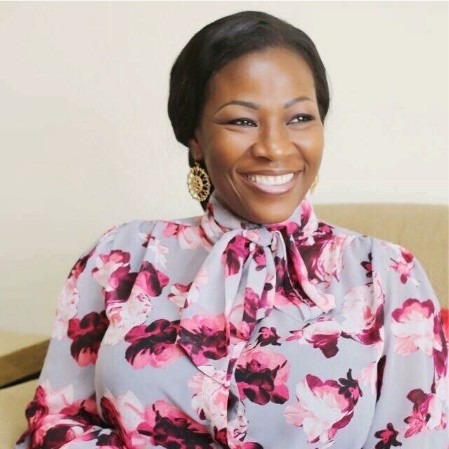The pandemic has revealed and amplified existing inequalities around the world. Amidst lockdowns and economic shocks, African women have been hit particularly hard.
According to the Brookings Institute, more than 70 per cent of women across the region now face insecurity. From job losses to increases in unpaid labour, a rise in domestic violence, and disruptions to education, African women have shouldered great mental, physical, and economic stress over the last year.
But despite the pandemic’s outsized impact on African women, their voices are seldom included in recovery efforts, especially at the highest levels of leadership. If we hope to recover and reset to build more equitable societies, the voices of female leaders must be front and centre.
In a recent survey by advocacy group Women Deliver and Paris-based research organisation Focus 2030, 7 of 10 workers on the frontline of the pandemic are female. Yet, women are left out of many COVID-19 response and recovery plans. Across the world, women only account for a quarter of decision-makers on COVID-19 response panels.
The situation in Africa isn’t much different. For example, women constitute only a quarter of ministers of health across the region.
In my home country, Ghana, I served as a member of the National Democratic Party’s COVID-19 Technical Response Committee.
Nevertheless, I could count the number of women involved in decision-making around the pandemic response in either major party on two hands.
This reality is not unique to Ghana; it is the status quo across the region. That oversight will cost Africa in the long term. Because the impact of the pandemic has been gendered, it is critical that the voices of all affected parties especially women be heard.
In early 2020, only 14 countries worldwide had cabinets where women held at least half of posts. Only one—Rwanda—was in Africa. By now, it is no secret that African women are rarely included in decision-making, policy, and government circles. And when women are included, they often suffer severe harassment.
According to a 2016 study, four in five women parliamentarians have experienced psychological violence linked to their job, one in four physical violence, and one in five sexual violence.
I know this firsthand: As a parliamentary candidate in Ghana’s recent elections, I experienced an avalanche of discrimination with bitter criticism of everything from my makeup to my medical qualifications, despite being a board-certified surgeon.
This vitriol is not only a threat to women’s safety but a deterrent that dissuades qualified female candidates from running in local and national elections alike.
We have to address the roadblocks that discourage women from taking office because women in leadership are essential to help us build forward differently.
For example, we have seen firsthand how countries that have most successfully navigated the pandemic have been female-led.
During the Covid-19 crisis, the number of cases and deaths were systematically better in countries led by women.
In the United States, one study of U.S. governors found that states with female leaders had lower fatality rates. These findings are not unique to industrialised economies: in India, women-led councils have pushed for better access to clean water – critical for preventing the spread of the virus.
When we exclude or dissuade women from political office, societies lose. After all, research and anecdotal evidence suggest that where women are in leadership, governments are more likely to respond better to crises in ways that support socio-economic development.
Full and equitable participation of women in public life is essential to addressing structural inequality. My fellow countryman Kofi Annan once noted that “there is no tool for development more effective than the empowerment of women. No other policy is as likely to raise economic productivity or to reduce child and maternal mortality. No other policy is as sure to improve nutrition and promote health, including the prevention of HIV/AIDS. No other policy is as powerful in increasing the chances of education for the next generation.”
What he did not include in that statement is the reality that women are not only facilitators of peace but are also the backbone driving our development.
It is not just because of altruism; it is often because women have experienced developmental challenges firsthand: the face of poverty in Africa is female. These lived experiences might explain why studies show that female politicians are more likely to prioritise health, education, and related indicators.
Gender equality is undoubtedly a regional and global imperative. The African Union calls for “a more inclusive society where all the citizens are actively involved in decision-making in all aspects.”
At the same time, the United Nations declares that all sustainable development goals hinge upon the achievement of gender equality.
But as we navigate COVID-19 recovery, we need more attention to gender equality than ever before. We have lost too much during this pandemic to let the carefully fought gains of recent decades disappear. To avoid regression, we must recognise that gender equality is critical to the ability of our societies and economies to recover and that diverse leadership is a crucial dimension of this journey.
Instead of seeking to go “back to normal”, it is time to introduce a “Great Reset” by promoting governance models that amplify women’s voices and engage women as decision-makers.
Dr. Grace Ayensu-Danquah, MD, MPH, FACS, is a US board Certified Surgeon Specialist, philanthropist, Gender Advocate, and current NDC Parliamentary Candidate for Ghana’s Essikado-Ketan Constituency.
Source: Dr. Grace Ayensu-Danquah


